How to Deal With Crisis
Oh No, the Computer or Car Crashes, or Basement Floods...OR!

Tools to use when things run amuck
Problems are only temporary and are opportunities in work clothes!
Rise above the clouds and you will see the sun. In every problem, there is opportunity; you need only look for it. Still your mind and you will be guided to turn each challenge into a gift of growth.
Wouldn't it be great if we could schedule crisis in? Gee, I have time next Tuesday at around 3 P.M. and it would be a good time then! But that's not the way it usually goes.
For me in the last couple of weeks the basement sewer backed up and there was standing water in several rooms of the basement. Recently there have been lost house keys and misplaced wallets! Then, just a week later the computer crashed and needed a new hard drive! Oh NO! What to do??!!
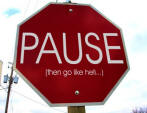
Pause when agitated or doubtful and wait for the intuitive thought or decision.
First the shock and amazement arise! Oh no, how could THIS be happening! But, but...this happens to other people, not ME! Surprise! This is a "pop quiz!" How well have I integrated my lifestyle self-management skills into my life? Can I bring a measure of peace, perspective, and calm into a challenging situation? How can I do this?
When life presents us with a lemon, don't squeeze it in your eye!
Alan Cohen suggests in his book I Had It All The Time, "Adversity is the soil in which seeds of greatness are grown. Every great person has achieved mastery not in spite of their challenges, but because of them. Difficulties are not boulders to crush us, but stones to build a stairway to the stars."

Consider a crisis as an opportunity in work clothes! I try to use everything that happens in my life for spiritual and emotional practice or training. When I go through a challenging life experience, I can validate for myself my increasing competency and also authenticate the knowledge that is contained in the life-wisdom and spiritual teachings that are given below.
They describe what happens to me and help me "reframe" the experience. Alan Cohen suggests in his book I Had It All The Time, "How would one who remembered his wholeness see this? Quickly the "test" will become a gift. You do not need to pass it; you need to embrace it...It is an invitation to love yourself more. Everything is an invitation to love yourself more." I come to respond with increasing levels of inner peace and acceptance, although things are still chaotic on the outside! I then ask myself some important questions.
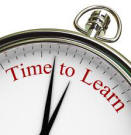
What can I learn about myself and life? What view or attitude will allow me respond to my life in a peaceful and engaged way? How do things REALLY exist? Are they solid? Do they always stay the same? Do material possessions or things outside of myself bring lasting happiness to me? What really brings happiness to me? What is really true? What is genuinely valuable in my life? I notice that:
Notice Everything changes!
What seems SO constant and permanent can actually vanish or change beyond recognition
at any time for reasons that are completely beyond our control!
We do what needs to be done, but release expectations of seeing the results of our actions.
We begin to appreciate the notion of control is an illusion.
Circumstances change, and we simply don't know what is going to happen next.
The only thing to do is what's in front of us, making the best effort possible!
Adapted from Ken McCloud, in his book Wake Up To Your Life, page 102 - 104
My recent crisis validated for me Ken's wisdom! I usually try to take a few minutes (if possible) to pray, tune into my feelings about what's going on, or perhaps to pause and take a NAP! Then my head and emotions are cleared of the fog of distress that may momentarily engulf me.
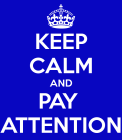
To cultivate healthy thinking habits, first acknowledge and pay attention to the automatic reactions and emotions that arise during a crisis. It is natural to experience grief, overwhelm, and perhaps frustration. Try to just "be present" with yourself. Just notice that things ARE really challenging. I use the process: Do You Experience a RAIN of Feelings? and How to Develop a Loving, Nurturing, Inner Voice for You to help me observe all of my inner reactions--and to just be a loving friend to me when I'm having a hard time.
After calming down, perhaps consider some of the following suggestions. All of the insights and resources below are an invaluable source of comfort and wisdom during difficult times.
Frolic around:
-
Pay a visit to Bob's story, The Emotional Area
Perform Practical Problem Solving From a Place of Perspective and Peace
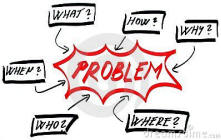
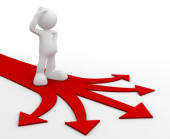
During a crisis, I certainly take all of the feasible steps that I know about to remedy the immediate urgent situation.
-
I evaluate the problem. What's going on? I try to do a quick assessment. What are all of the factors that influence the present situation?
-
What can I do about the problem? What are some alternatives? I try to come up a variety of possible fixes or options. Can I fix it myself? Or do I need some help? Who can I call? What resources do I need?
-
What are the pros and cons of the possible choices and different fixes?
-
I then make a decision to try something out. I ask, "Did it work?" Yes? Partially fix the problem? No? I keep trying different things out until the crisis is stabilized.
-
I ask myself, "What can I do to prevent the problem from happening again, or minimize the impact?" Like buying an external hard drive to back up my data before the computer crashes again, or performing regular maintenance on the car.
-
Sometimes things work out the way I would want them to. Other times, I get to practice patience and acceptance! I always congratulate myself for taking the time to use these self-management tools. Good show Bob!
How Do I Continue With My Healthy Self-Care During a Crisis?
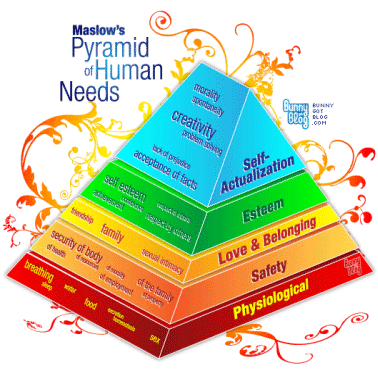
I use the Daily Personal 5-Minute Check-In and Cultivate Daily Quiet and Personal Introspection Time, and also the wisdom and experience I have in maintaining my weight and sanity that is shared in Discover and Apply Your Own Healthful Lifestyle Maintenance Schedule.
I also Get to Know My Stress and How to Manage It and practice on-the-spot stress management techniques. What's more, I Relax, Observe, and Allow along my life's journey and give myself an Emotional—Spiritual Tune-up. Lastly, I keep my life in as much balance as possible. Ah...much better!
I try to remain mindful of what I need to stay well and not to get too stressed out and compulsive! It's not OK to kill Bob off (or YOU either!), even for a spectacular reason!
Managing the Emotional and Physical Pain of Chronic Illness or Injuries

If your crisis is physical in nature, e.g. injured limbs, heart attack, or other chronic illnesses, that involve you or a loved one, perhaps check out:
-
The Anatomy of Persistence--How Does Bob Keep Going When Injured?
-
Lastly to help you keep perspective, explore Thoughts On Healing and Helping Yourself and Others.

When a crisis happens for me, this is a reminder of some profound spiritual principles. I've studied the ideas, now I can see their value in every-day life. I encourage myself to reflect on:
-
How to Take the Ache out of Attachment (strong desires!) and How to Transform Attachment
-
The Process that Transforms Disturbing Attitudes and Negative Emotions
-
Lastly Gratitude List!
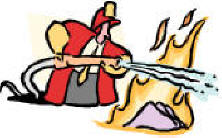
So, how about for you? How will you prepare for your next crisis? What tools, insights, and resources will you choose to practice to help you stay in balance?
Helpful Resources
Explore the book, Practicing The Power of Now, (1999), by Eckhart Tolle, New World Library Sounds True has audio and videotapes of this book, and many other titles. http://www.soundstrue.com/ 800-333-9185 Provides suggestions and insights to experience the joy of being, to enter the now, to accept whatever is happening (to see impermanence and the cycles of life), and to transform the "pain body" in us. This section is especially helpful when you find yourself triggered into a dark mood--it comes upon you-- and you start getting into a negative mind-pattern and thinking how dreadful your life is; you might feel depressed, despairing, and cynical and find yourself having a desire to hurt yourself or others, or find you become very angry or withdrawn. Notice, your thinking has become aligned with the pain-body. See Chapter Six: Dissolving the Pain Body. I found it to be extremely helpful and very practical.
PTSD Resources:
Taking Control of Your Trauma: A Guide to PTSD Treatment
This not only has great general information about this mental health disorder, but it also sheds light on the many treatment options available for those struggling with it.
The Guide to Managing PTSD as a Tradesman
Working as a skilled tradesman can be a wonderful career, but may present challenges to someone with PTSD, especially if they were a combat veteran. This guide offers wonderful insight on how to overcome these obstacles.
PTSD in Children — Does Your Child Have Symptoms?
Sadly, many children are affected by PTSD (this article notes that an estimated “60 percent of children who survive disasters” develop it, among others). This resource will help concerned parents find help for their children.
Promoting Mental Health at Home: How to Design the Perfect Meditation Room
Many people with PTSD have told me that along with therapy, meditation and yoga are both wonderful ways to ease their symptoms. It’s really easy to create a calming space for practicing both at home.
So, You Want a PTSD Service Dog?
Man’s best friend is quickly becoming a renowned source of support for those with PTSD (as well as many other mental health issues). This great article has answers for anyone with questions about getting one of these special creatures for themselves or a loved one.
The Veterans’ Complete Guide to Relocation
For veterans with PTSD, it sometimes helps to get a fresh start post-service. This guide is an excellent resource for those who are ready to move on.
Healing Power: Ten Steps to Pain Management and Spiritual Evolution by Philip Shapiro M. D. Visit Dr. Shapiro at: http://www.philipshapiro.com/ Publisher Comments:
We seek unlimited peace, love and joy in an uncertain world where suffering is inevitable. Because we manage our pain poorly, we get into trouble. The wisdom of the ages, taught by the world's diverse religious traditions, offers a solution to this dilemma by pointing out the connection between pain management and the cultivation of spiritual qualities. When we develop a spiritual practice, we learn how to transform our suffering into spiritual power. Dr. Shapiro describes a self-help method of ten steps that propel spiritual evolution. The ten steps teach us how to expand our healing power, improve our pain management skills, and cultivate spiritual qualities. The central premise is that life, through a series of painful lessons, teaches us that the peace, love, and joy we seek in the outer world can and must ultimately be found within. Dr. Shapiro elaborates twelve spiritual methods derived from the world's great religions. These methods help us unlock healing and spiritual powers inherent in the body. Detailed instructions explain how these methods help us cultivate peace, love, joy, strength, and courage in response to any pain of the body, mind, or soul. These qualities are the jewels of this life. They are healers. They help us eliminate or endure any painful condition of body, mind, or soul. They are more powerful than any barrier or challenge we may face. We encounter trouble no matter which route we take, but the way offered here is the path of least resistance, the way through our pain to peace, power, and strength. As we move forward through the steps, we find ourselves living the richest possible life, a journey where our spirit is in charge and we are ready for anything!
You Can Be Happy No Matter What: Five Principles for Keeping Life in Perspective, by Richard Carlson, Ph.D., (1997), New World Library. Richard shares PRINCIPLES ABOUT: of thoughts, about moods, of separate realities, of feelings, and of the present moment. He helps the reader create more effective relationships, understand stress, and solve problems in life to increase happiness and reduce addictive behaviors. Provides a "checklist for your life."
When Things Fall Apart, Wisdom Of No Escape,
Start Where You Are, By Pema Chodron,
(1994), Shambhala, Publications All of Pema’s books provide earthy, honest
advice—as if from your loving grandmother.
Wake Up To Your Life: Discovering The Buddhist Path of Attention, By Ken McLeod, (2002), Harper Collins Publishers, Inc. An excellent resource on dismantling our automatic reactions and conditionings to life. Provides practical insights about how to train our minds to experience greater peace and contentment. Really GOOD! You can purchase the book at: http://www.unfetteredmind.org/ustore See the meditation section of this web site. Explore Buddhism In A Nutshell at http://www.unfetteredmind.org/buddhism-in-a-nutshell-teachings and at Natural Awareness.net http://www.naturalawareness.net/books-wutyl.html